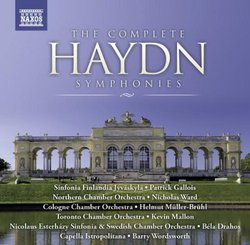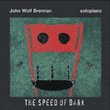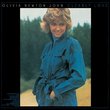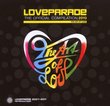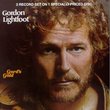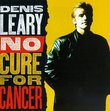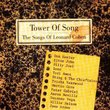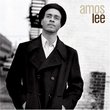| All Artists: Haydn Title: F.J. Haydn: The Complete Symphonies (Box Set) Members Wishing: 0 Total Copies: 0 Label: Naxos Original Release Date: 1/1/2008 Re-Release Date: 11/18/2008 Album Type: Box set Genre: Classical Style: Symphonies Number of Discs: 34 SwapaCD Credits: 34 UPC: 730099340045 |
Search - Haydn :: F.J. Haydn: The Complete Symphonies (Box Set)
CD DetailsSimilar CDs
Similarly Requested CDs
|
CD ReviewsThe Joy of Haydn Symphonies J Scott Morrison | Middlebury VT, USA | 11/27/2008 (5 out of 5 stars) "I can't tell you how much unmitigated pleasure I've had over the past week or so listening to the treasures contained in this box set of all of Haydn's symphonies. I've been in a Haydn frenzy this past month what with listening to and reviewing the Naxos box set of all the string quartets F.J. Haydn: The Complete String Quartets (Box Set), and now the sympnonies; the complete piano sonatas await F.J. Haydn: The Complete Piano Sonatas (Box Set). And on top of that I sang in a performance of Haydn's Creation a week ago, too. I keep thinking I'll get tired of Haydn, but it hasn't happened yet! (What a persistent set of Earworms his music provides!)
I have had a number of wonderful single recordings of Haydn symphonies over the years but never collected an entire set, not Adam Fischer's set on Brilliant, say, or any of the earlier ones like Dorati's with the Philharmonic Hungarica. Having gotten this set, though, I find myself not feeling any need to look any further. First a few statistics. There are 34 CDs in the set which includes all of Haydn's extant symphonies, actually 108 of them if you count the 104 standard ones plus the Sinfonia Concertante (here in a terrific performance) and the so-called 'Symphony A' and 'Symphony B'. There are several orchestras involved, each with several CDs in the series to their credit. They are the Capella Istropolitana (Bratislava) under Barry Wordsworth; the Cologne Chamber Orchestra under Helmut Müller-Brühl; the Nicolaus Esterházy Sinfonia under Béla Drahos; the Northern Chamber Orchestra under Nicholas Ward; the Sinfonia Finlandia Jyväskylä under Patrick Gallois; the Swedish Chamber Orchestra under Béla Drahos; and the Toronto Chamber Orchestra under Kevin Mallon. All of these groups acquit themselves with honor, even the ensembles one has never heard of. One tends to think that Haydn's symphonies don't really come into their own until he enters his Sturm und Drang era, roughly those from Symphony No. 35 up to No. 60 or so, and I had never paid much attention to the symphonies that came before that. But it was a revelation to hear some of the very early symphonies which, although they don't sound like the Haydn we know and love, are nonetheless replete with felicities. For instance there is the long cello solo in the slow movement of Symphony No. 13, essentially an aria for cello, lovely in the extreme. Or the military air of Symphony No. 9, the sonata da chiesa form of Symphony No. 11, the use of cor anglais in No. 22 'The Philosopher'. One can see that Haydn knew how, for instance, to use winds in his characteristic and delightful way as early as these first essays in the symphony form. Probably most notable among them were Nos. 6, 7 & 8, the so-called 'Matin', 'Midi', and 'Soir' symphonies. One of my favorite Haydn symphonies has always been No. 44, the 'Trauersinfonie' ('Mourning Symphony'), and I would never want to be without the recording by the wonderful Orpheus Chamber Orchestra, but the performance here by Capella Istropolitana is very nearly its equal. It was of course during the Sturm und Drang period that Haydn left behind the compose-to-a-formula symphony and began writing works that expressed feelings. And certainly No. 44 is among those. I hold it close to my heart and this performance does not disappoint. As we get beyond 1761 and Haydn's move to Eszterhazy we see the blooming of Haydn's genius and practically all the symphonies written from then on are veritable masterpieces. And by the time Haydn has become famous throughout Europe, making trips to Paris and London, the flow of brilliant works is in full spate. There is not one of these latter works I would gladly be without. It would be silly of me to pick one or two as favorites, but I feel that the performances of Nos. 88, 92, 94, 96, 101-104 are a triumph. Indeed, I think I may b well be driving my wife up the wall with my repeated playing of these late works. But they are so inspiriting, so inspiring, so satisfying that I don't seem to be able to stop. In all honesty, although I have heard only a few of them, I suspect if cost is a consideration the Fischer/Austro-Hungarian Orchestra set may be the preferable set because of their budget price Haydn: Complete Symphonies (33 CD Box Set). I've been very pleased with those I've heard and the set as a whole has gotten laudatory reviews. Of course, you could also simply buy both sets! (But that may be my Haydn-intoxication speaking.) Scott Morrison " |

